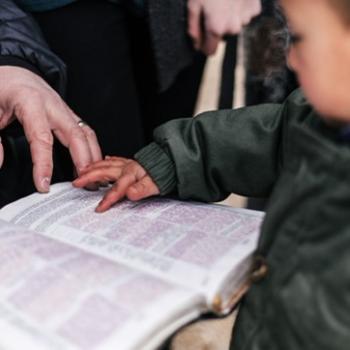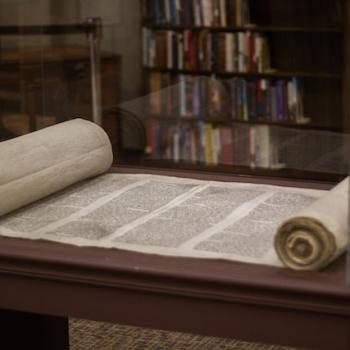The cross of Christ is a critical distinguishing factor of Christianity. If you deny the reality of the event or the historical existence of the person, and you end up something very anti-Christian. In the most beautiful demonstration of love the world has ever seen, God became man to suffer in place of His people. I have heard it said that justice and love kissed on the cross. Justice demands punishment for sin and love offers a perfect substitute.
Using Isaiah 53, which was written hundreds of years before Christ walked the earth, let’s examine 8 reasons Christ died on the cross. I encourage you to read the chapter below slowly, as if reading for the first time.
1 Who has believed what he has heard from us? And to whom has the arm of the Lord been revealed?
2 For he grew up before him like a young plant, and like a root out of dry ground; he had no form or majesty that we should look at him, and no beauty that we should desire him.
3 He was despised and rejected by men; a man of sorrows, and acquainted with grief; and as one from whom men hide their faces he was despised, and we esteemed him not.
4 Surely he has borne our griefs and carried our sorrows; yet we esteemed him stricken, smitten by God, and afflicted.
5 But he was pierced for our transgressions; he was crushed for our iniquities; upon him was the chastisement that brought us peace, and with his wounds we are healed.
6 All we like sheep have gone astray; we have turned—every one—to his own way; and the Lord has laid on him
the iniquity of us all.
7 He was oppressed, and he was afflicted, yet he opened not his mouth; like a lamb that is led to the slaughter,
and like a sheep that before its shearers is silent, so he opened not his mouth.
8 By oppression and judgment he was taken away; and as for his generation, who considered that he was cut off out of the land of the living, stricken for the transgression of my people?
9 And they made his grave with the wicked and with a rich man in his death, although he had done no violence, and there was no deceit in his mouth.
10 Yet it was the will of the Lord to crush him; he has put him to grief; when his soul makes an offering for guilt, he shall see his offspring; he shall prolong his days; the will of the Lord shall prosper in his hand.
11 Out of the anguish of his soul he shall see and be satisfied; by his knowledge shall the righteous one, my servant, make many to be accounted righteous, and he shall bear their iniquities.
12 Therefore I will divide him a portion with the many, and he shall divide the spoil with the strong, because he poured out his soul to death and was numbered with the transgressors; yet he bore the sin of many, and makes intercession for the transgressors. (Isaiah 53, ESV)
1. He bore our griefs and carried our sorrows
The word “borne” literally means to bear or carry. At Calvary, Jesus carried our guilt and shame. The weight of His people’s sorrows were heavy and painful, but He did not drop them. Faced with no source of comfort, He persevered until His work was finished. Christian, please know that there is no shame, guilt, or suffering you can experience that He can not sympathize and offer hope (Hebrews 4:15).
Joseph Benson had this to say about the verse in his commentary:
“Whereas it may seem an incredible thing, that so excellent and glorious, and so innocent and holy a person should meet with this usage, it must be known that his griefs and miseries were not laid upon him for his own sake, but wholly for the sake of sinful men, in whose stead he stood, and for whose sins he suffered”
2. He was stricken, smitten, and afflicted by God
The assault upon Christ had several fronts. It came in the way of words as God was mocked and dishonored. It also came upon him from the hands of men, as He was beaten, blow after blow. Yet not one of these afflictions were deserved; Christ Jesus was the spotless Lamb of God who remained silent before the slaughter. As mentioned later in the chapter, “It was the will of the LORD to crush Him”.
3. He was pierced for our transgressions
God made Him who knew no sin to be sin (1 Cor 5:21). At Calvary, Christ became our substitute and was pierced for our transgressions and our sin. His back bore stripes from the Roman scourging, His hands and feet had nails driven through them to hold Him to the cross, and His side was pierced and blood and water poured out of it. Scripture teaches us that is some ways His body still bears the scars and will for all of eternity. 10,000 years from now we will still be able to examine the holes in His hands, feet, and side. These will be permanent reminders of greatness of our King.
4. He was crushed for our iniquities
For our immoral thoughts, deeds, and omissions, He was stricken mentally and physically to the point of physical deformation. He was crushed and broken beyond what any man has experienced as He took the curse of the law for us. He knew from eternity past this day would come (Rev 13:8). Still, He did not flee from it, but pursued and endured the shame of the cross for the joy set before Him. Echoing the words of Isaiah 50, Luke writes, “…when the days drew near for him to be taken up, he set his face to go to Jerusalem (Luke 9:51).
5. He endured the chastisement that brings us peace
Puritan Matthew Henry said this best in his commentary on Isaiah 53:
“Hereby we have peace: The chastisement of our peace was upon him; He, by submitting to these chastisements, slew the enmity, and settled an amity, between God and man; He made peace by the blood of His cross. Whereas by sin we had become odious to God’s holiness and obnoxious to his justice, through Christ God is reconciled to us, and not only forgives our sins and saves us from ruin, but takes us into friendship and fellowship with Himself, and thereby peace (that is, all good) comes unto us (Col. 1:20). He is our peace (Eph. 2:14). Christ was in pain that we might be at ease; He gave satisfaction to the justice of God that we might have satisfaction in our own minds, might be of good cheer, knowing that through Him our sins are forgiven us. It was through this event that peace was secured. “
6. He brings us healing through the cross
It’s through the cross we find healing. The grossness of sin is more than just iniquity and transgression, it is also a terrible disease. The sickness of sin entered the world in the garden of Eden so many years ago and continues to wreaks havoc in our fallen world. But God, in the greatest demonstration of love ever made, provides the nourishment our souls need to be restored to health. Not only this, the dominion that sin has over our lives is broken. We are no longer slaves to sin but, in Christ, are slaves to righteousness (Rom 6:18).
7. He would cause many to be counted as righteous
We find here some of the sweetest words in all of Holy Scripture. It was through this act on the cross that we are considered, or regarded, as righteous. 1 Corinthians 5:21 explains how this happens, “He made Him who knew no sin to be sin on our behalf, so that we might become the righteousness of God in Him.” Isaiah goes on to say, “Therefore I will divide him a portion with the many and he shall divide the spoil with the strong” (Isa. 53:12). Not only have our sorrows, guilt, sin, and chastisement been poured out on Christ, but by faith, we are imputed with the righteousness of God. What’s more than this: we are also made heirs to the Kingdom of God! We are accepted and adopted as sons and daughters by our Father in heaven.
8. He was numbered with the transgressors
If there were any doubt in the calculated accuracy and planning of this event, the Word of God reminds us that there is an exact number of people whose sin was borne on the cross. No one but God Himself knows the precise number, but we can take joy in the fact that whatever it may be, it is as vast as the stars in space (Gen 15:5). God has called His children from every tribe, tongue, and nation for eons – and we shall all undoubtedly sing His praises for the good news of the gospel.

















